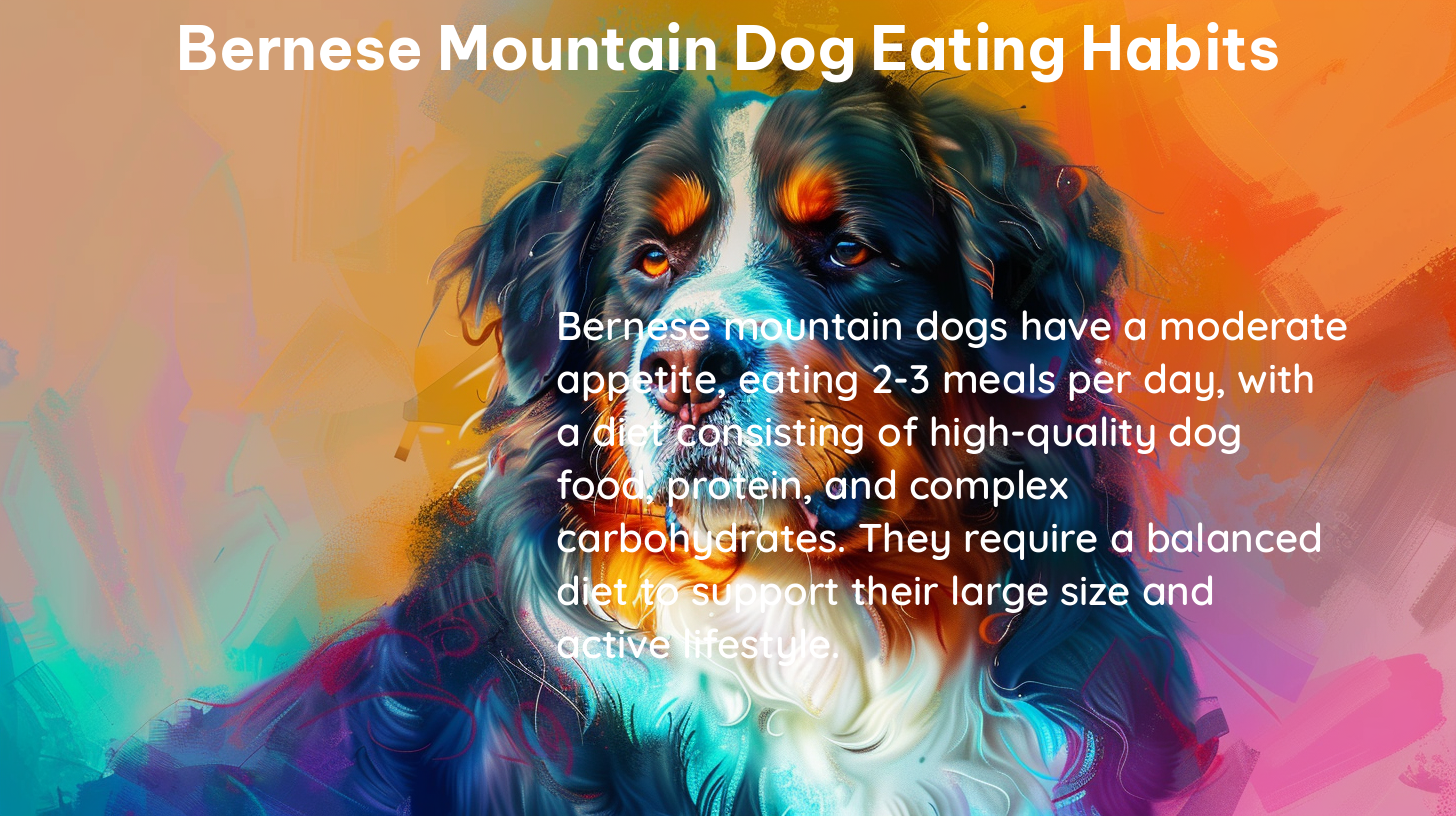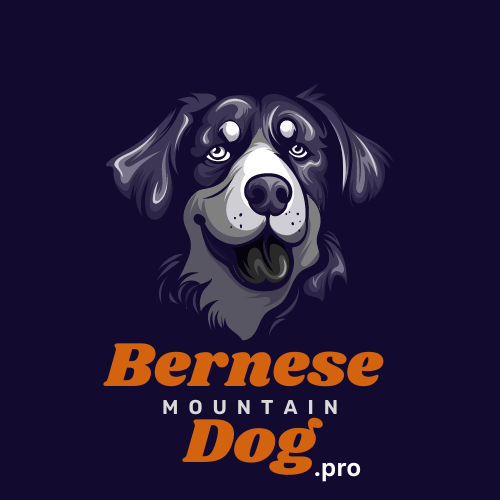Bernese Mountain Dogs have specific dietary requirements to maintain their health and well-being. From high-quality protein sources to essential vitamins and minerals, understanding the optimal feeding habits for these gentle giants is crucial. This comprehensive guide will explore the key aspects of a Bernese Mountain Dog’s diet, providing you with the knowledge to ensure your furry friend thrives.
High-Quality Protein Sources

Bernese Mountain Dogs require a diet rich in high-quality protein to support their large, muscular frames. The primary protein sources should come from lean meats like chicken, beef, or fish. These protein-rich foods help maintain muscle mass and support overall health.
Balancing Fats and Carbohydrates

In addition to protein, Bernese Mountain Dogs need a balanced intake of healthy fats and complex carbohydrates. Healthy fats, such as those found in fish oil, provide a concentrated source of energy and support skin and coat health. Complex carbohydrates, like whole grains, vegetables, and fruits, offer long-lasting energy and aid in digestion.
Essential Vitamins and Minerals
Ensuring your Bernese Mountain Dog’s diet is fortified with essential vitamins and minerals is crucial for their overall well-being. Look for dog foods that are supplemented with calcium, phosphorus, vitamins A and E, and other key nutrients to support bone health, immune function, and more.
Feeding Guidelines
Proper portion control is essential for Bernese Mountain Dogs to maintain a healthy weight. Feed your dog two meals per day, adjusting the quantities based on their age, activity level, and individual needs. Puppies require more calories and nutrients for growth, while senior dogs may need a diet lower in calories and higher in fiber.
Hydration and Treats
Providing access to fresh, clean water is vital for your Bernese Mountain Dog’s health. Wet food can also contribute to their water intake, which is beneficial for dogs that may not drink enough. When it comes to treats, choose healthy options and limit them to avoid disrupting the balanced diet.
Managing Food Allergies and Sensitivities
Some Bernese Mountain Dogs may develop food allergies or sensitivities. If you notice signs like itchy skin, ear infections, or digestive issues, consider switching to a hypoallergenic diet or one with limited ingredients to address the problem.
Preventing Bloat
Bernese Mountain Dogs are prone to a life-threatening condition called bloat, which can occur when the stomach twists. To reduce the risk, feed smaller, more frequent meals and avoid vigorous exercise before and after eating.
Dietary Supplements
While some supplements like fish oil, glucosamine, and chondroitin may benefit Bernese Mountain Dogs, it’s essential to consult with a veterinarian before adding them to your dog’s diet.
Avoiding Harmful Foods
Certain human foods, such as chocolate, caffeine, grapes, raisins, onions, and garlic, can be toxic to Bernese Mountain Dogs. Always check the ingredients of commercial dog foods to ensure they do not contain any harmful additives.
Raw Diet
Some Bernese Mountain Dog owners choose to feed a raw diet, which aims to mimic the natural diet of dogs. This approach focuses on high-quality animal-based protein sources, healthy fats, vitamins, minerals, and fiber from vegetables and berries.
Feeding Puppies
When it comes to feeding Bernese Mountain Dog puppies, it’s crucial to consult with the breeder and work closely with a veterinary nutritionist to ensure your pup is getting the right balance of nutrients for their growth and development.
General Feeding Guidelines
As a general guideline, a healthy Bernese Mountain Dog can eat approximately 3/4 to 1 1/2 cups of food per meal, with puppies typically requiring three meals per day until they reach six months of age, after which they can be fed two meals per day.
Remember, the exact feeding requirements for your Bernese Mountain Dog may vary based on their size, activity level, and individual needs. It’s always best to consult with your veterinarian to develop a personalized feeding plan for your furry friend.
References:
1. iHeartDogs.com. (2023, November 29). Ideal Diet for Bernese Mountain Dogs – iHeartDogs.com. Retrieved from https://iheartdogs.com/ideal-diet-for-bernese-mountain-dogs-the-ultimate-bernese-mountain-dog-feeding-guide/
2. MountainBernese.com. (n.d.). How Much to Feed a Bernese Mountain Dog Puppy. Retrieved from https://mountainbernese.com/how-much-to-feed-a-bernese-mountain-dog-puppy/
3. ProDogRaw.com. (n.d.). Bernese Mountain Feeding Guide – ProDog Raw. Retrieved from https://www.prodograw.com/raw-feeding-guide/bernese-mountain-feeding-guide/
4. Reddit.com. (2023, March 1). How much food per day do you feed your Berner? Retrieved from https://www.reddit.com/r/bernesemountaindogs/comments/11f9hd0/how_much_food_per_day_do_you_feed_your_berner/
5. BMDInfo.org. (n.d.). Dog Food Feeding Berner Puppies and adults – bmdinfo.org. Retrieved from http://www.bmdinfo.org/bernerpedia/Dog_Food_Feeding_Berner_Puppies_and_adults.php.

Sarah Johnson
Sarah Johnson is a devoted Bernese Mountain Dog enthusiast and regular contributor to Bernese Mountain Dog Pro. With over a decade of experience in raising and training Berners, Sarah brings practical knowledge and passion to her writing. Sarah lives in Colorado with her two Berners, Max and Bella.